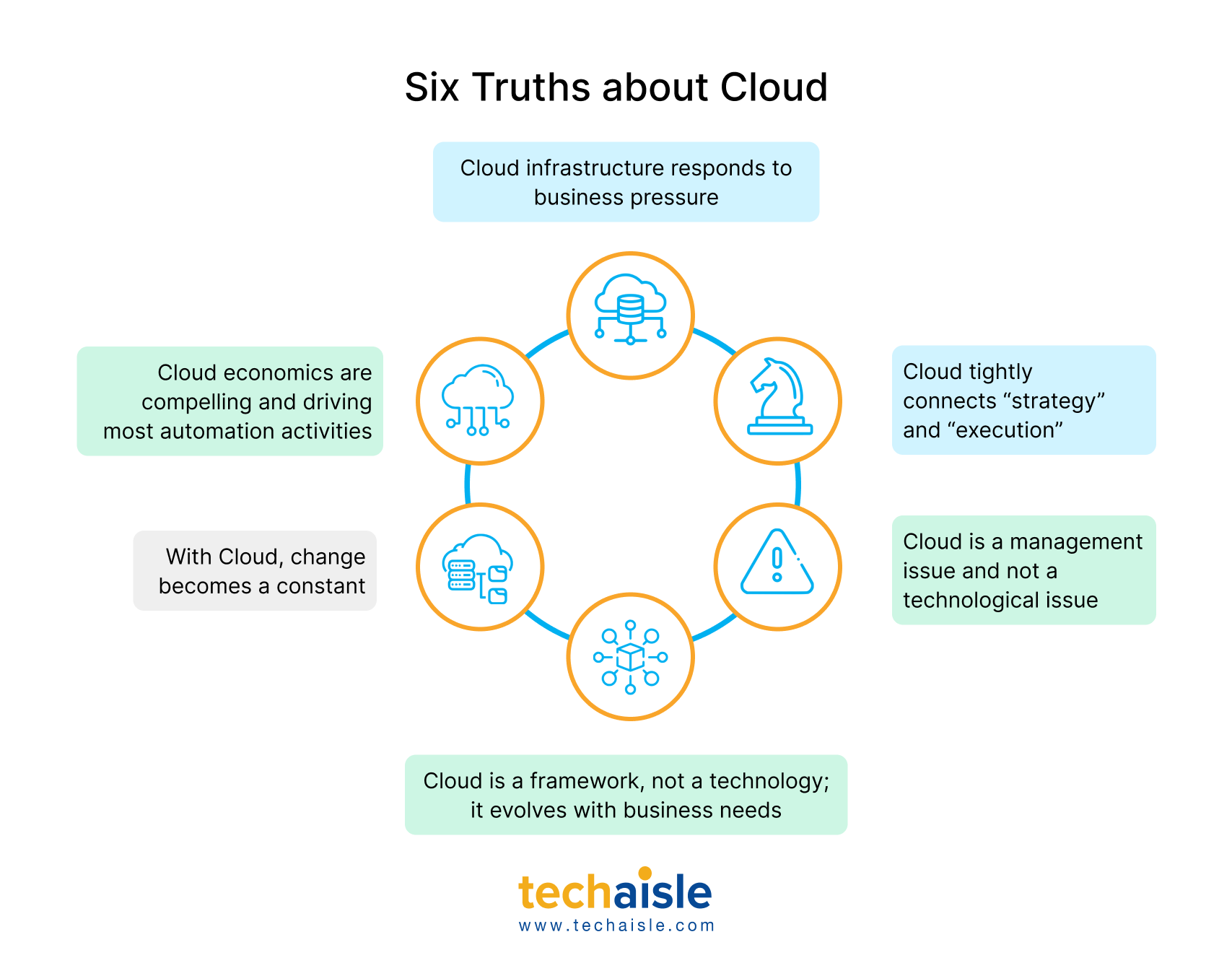In a genuine sense, the discussion of “the cloud” is similar in scope to the discussion of “IT.” In both cases, use is a given, but the scope and impact of that use are critical to the operational effectiveness and competitiveness.
In today’s world, there is little distinction between “business infrastructure” and “digital business infrastructure;” in recent SMB survey research, Techaisle found that executives from nearly all upper midmarket firms (1000-4999 employees) agree that we have reached a “post-digital” state where all business strategy discussions include digital considerations.
Cloud is the linchpin for these strategies. A Techaisle survey of more than 2,000 firms, segmented into small business (1-99 employees), core midmarket (100-999), and upper midmarket (1000-4999), found that across this broad spectrum, SMBs universally see cloud as a way to reduce IT and operational costs, increase operational agility, and support improved business processes that drive increased efficiency and profitability.
Cloud in an SMB Business Context
For more than a decade, the cloud has been touted as a means of enabling SMBs to capture IT benefits that were previously the sole province of large enterprises: the ability to achieve both IT cost-efficiency and the competitive edge arising from ubiquitous automation that accelerates processes and unlocks the potential of new relationships, offerings, and markets. Today, SMBs and midmarket firms are seeking a zero-friction future: a state in which businesses can seamlessly deploy and integrate capabilities across multiple business areas, creating fluid systems linking core functions to new approaches to engagement, insight, and innovation.
Since 2014, the path forward has proved to be more fractious than the vision. In most SMBs, the cloud itself advanced in fits and starts, with early attempts at hosted private cloud and use of public cloud to support business-critical workloads snagging on unclear platform standards, a lack of experienced talent, economic worries, and a delivery horizon which remained stubbornly beyond practical experience. But in time, knowledge and improved technologies have addressed the rough edges.
Cloud is increasingly able to deliver real benefits to SMBs: it is both a priority and a current reality, providing business infrastructure that connects strategy and execution, responding to changing business requirements, changing customer and supplier expectations, volatile competitive pressures, and new opportunities for automation of both systems and system-dependent processes and workflows.
Six truths about cloud in the SMB
The emergence of the cloud as SMB infrastructure has underscored several interrelated IT and business imperatives. To deliver an IT approach that will provide ongoing support for critical business goals – revenue growth, cost control risk management, and operational agility – SMB IT leaders need to embrace priorities that tie to six critical constants:
- Cloud is a framework, not a technology; it evolves with business needs.
- Cloud infrastructure responds to business pressure.
- Cloud economics are compelling and drive most automation activities.
- Cloud tightly connects strategy and execution.
- With the cloud, change becomes a constant.
- Cloud is a management issue and not a technological issue.

The three “truths” shaded in green (cloud economics are compelling, the cloud is a management issue, the cloud is a framework, not a technology) focus primarily on the need for the cloud to empower management activities. At one level, the cloud is an IT issue – it requires judicious selection and deployment of technologies, access to internal and external IT skills, and foresight from the IT leadership team. But ultimately, the specific capabilities woven into the cloud are determined by the needs of the business. Management owns the strategic plan that sets priorities for the business; IT uses the cloud to deliver powerful, versatile, and cost-effective backing for the operational plan that supports these strategies.
The two headings highlighted in blue (cloud infrastructure responds to business pressure, cloud tightly connects strategy and execution) indicate areas that require tight IT/business collaboration. The emphasis is on IT’s ability to quickly, securely, and cost-effectively roll out capabilities that address requirements and opportunities that arise with changes in customer preferences, market demand, or competitive pressures. There is an added implication that the cloud will provide a “sensing system” that helps management to identify these changes – for example, by aggregating and analyzing internal and external market data to provide early notice of needed actions or by aligning security with emerging cyber threats before they impact business operations.
The final item, “with cloud, change becomes a constant,” repeats a fact that IT leaders understand implicitly. The pace and nature of that change are evolving: SMBs are no longer consumed primarily by whether and how to host core systems on cloud platforms but by how to construct and secure composable application stacks that align automation with workflows, streamlining processes while freeing up resources for pursuit of better business outcomes. IT must stay ahead of this demand by building technology (infrastructure) and human (hybrid teams incorporating internal staffers and third parties) resources that align with the other truths highlighted in the figure above.
Cloud provides SMBs with a unique means of capturing compelling business benefits. Sellers focused on the SMB market have, in turn, compelling reasons to support the formation, delivery, refinement, and expansion of client cloud strategies.